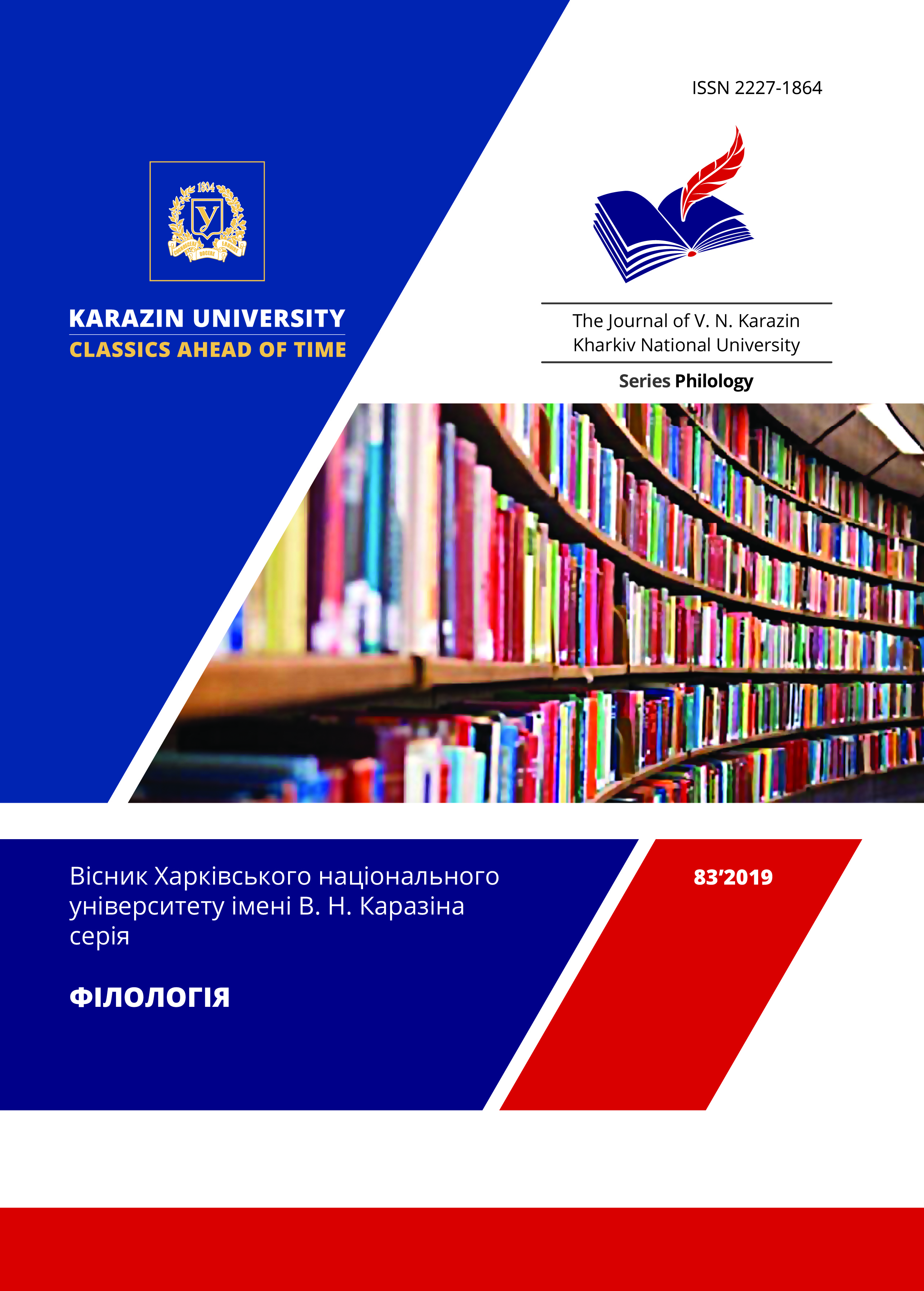Музичний код і музичний екфразис в новелі І. Франка «Вільгельм Телль»
Анотація
В статті аналізується новела І Франка «Вільгельм Телль» крізь призму музичного коду та музичного екфразиса.
Поки ніхто з франкознавців не звернув уваги на сюжетотворчу роль россінієвської опери в новелі: але ж в першій частині чотирьохчастної новели молода пара збирається в оперу, а в подальших частинах Франко послідовно розкриває сприйняття героїнею спочатку увертюри до опери, а потім окремих її сцен. Після закінчення опери Оля новелістично несподівано на зовні-подієвому плані новели заявляє, що вона не любить Володко, але на внутрішньому, духовно-психологічному – завдяки словесному опису музики та її сприймання героями – це становиться закономірним.
За допомогою музичного екфразиса стають зрозумілими і глибина враження Олі від россінієвської опери, і психологічна чутливість героїні до почутого. Причому Франко знаходить свою «нішу» в зображенні розуміння героїнею оперної музики: якщо зарубіжні письменники середини ХІХ століття частіше за все описують почуття та емоції, які викликає в героях музика, то Франко, спираючись на картинну програмність (пейзажі рідної землі та ідеальні уявлення героїні про сімейне щастя), якою Оля супроводжує почуту музику, виявляє багатий внутрішній світ дівчини та її ідеали.
Романтична героїко-патріотична опера Россіні «Вільгельм Телль», її музичні образи та сценічна дія стають в новелі «лакмусовим папірцем»: відношення героїв до оперного спектаклю, враження від нього становляться важливим засобом розкриття їх характерів. Поверхневе ставлення Володки до музики як до розваги, з одного боку, та здатність Олі під впливом музики побачити істинний сенс життя, який корегує її світосприйняття від пасторально-романтичного до героїко-романтичного, з другого, дозволяють зрозуміти і різні життєві позиції героїв – інтелігента-пристосуванця у Володки і служіння народу у Олі, та, власне, ідейно-художню концепцію самого письменника.
Завантаження
Посилання
Belskaya A.A. (2018). «Muzykal'nyy kod» romana I.S. Turgeneva «Dvoryanskoye gnezdo» ["Musical code" of the novel by I.S. Turgenev's "Noble Nest"] Uchenyye zapiski Orlovskogo gosudarstvennogo universiteta – Scientific notes of Oryol State University, 3, 80–88. Retrieved from https://cyberleninka.ru/article/n/muzykalnyy-kod-romana-i-s-turgeneva-dvoryanskoe-gnezdo
Golod R.B. (2006). Ivan Franko ta literaturni napryamy kintsya ХІХ – pochatku ХХ stolittya [Ivan Franko and the Literary Directions of the End of XIX – Beginning of XX Century]. Extended abstract of Doctor’s thesis. Lviv.
Denysyuk I. (1999). Rozvytok ukrayins’koyi maloyi prozy XIX – poch. ХХ st. [Development of Ukrainian small prose XIX – beginning XX century]. Lviv: Academic Express Scientific Publishing Society.
Konen V. (1981). Istoriya zarubezhnoy muzyki [History of foreign music]. (Issue 3.). Moscow: Music.
Lapiy M. (2014). Ideya syntezu mystetstv u peyzazhnomu dyskursi Ivana Franka [The idea of synthesis of arts in the landscape discourse of Ivan Franko]. Ukrayins’ke literaturoznavstvo – Ukrainian Literary Studies, 78, 86–98.
Sollertinsky I.I. (1963). Romantizm, yego obshchaya i muzykal'naya estetika [Romanticism, its general and musical aesthetics]. Istoricheskiye etyudy [Historical studies]. Moscow: State Music Publishing House.
Solovyova E.E. (2016). «Muzykal'nyy kod» i «muzykal'nyy ekfrasis» [“Musical Code” and “Musical Ecfrasis”]. Stephanos – Stephanos, 2, 119–128. Retrieved from http://www.stephanos.ru/izd/2016/12_2016(2)16-2.pdf
Franko I.V. 16 et al. (1978). Zibrannya tvoriv [Collection of works]. (Vols. 1-50). Kiev: Scientific Thought.
Franko I.V. 27 et al. (1980). Zibrannya tvoriv [Collection of works]. (Vols. 1-50). Kiev: Scientific Thought.
Horvath K. (1973). Romanticheskiye vozzreniya na prirodu [Romantic views on nature]. Yevropeyskiy romantizm [European romanticism]. I. Neupokoeva (Ed.). Moscow: Nauka.
Khokhlov Yu.N. Programmnaya muzyka [Program music]. Musical Encyclopedia. Retrieved from http://www.musenc.ru




